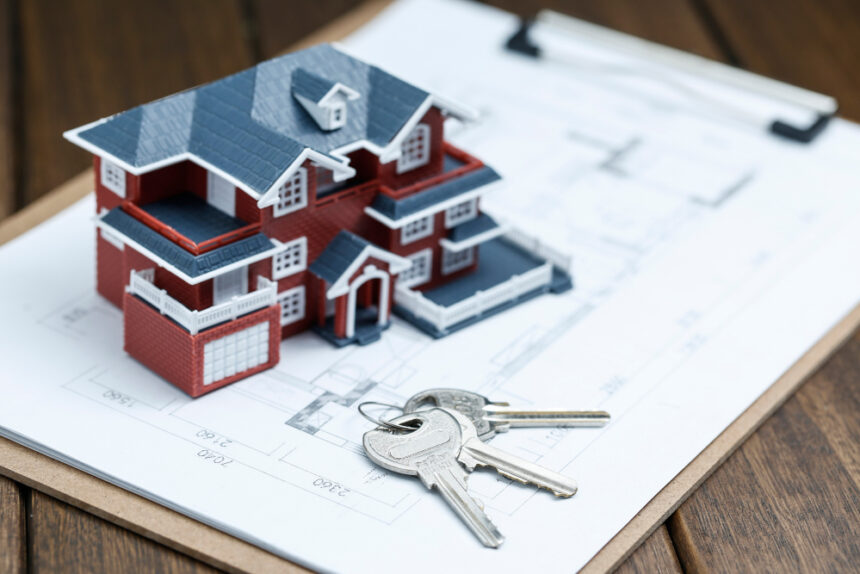Introduction: Why Financial Preparation Matters in Home Sales
Buying a home is one of the biggest financial decisions most people will ever make. Whether you’re a first-time buyer or a seasoned investor, navigating the financial side of home sales can be overwhelming. From understanding mortgage types to getting pre-approved by a lender, the process involves numerous steps that impact your purchasing power and overall success.
In today’s fast-paced housing market, having your finances in order before making an offer is more important than ever. A well-organized financial profile not only helps you secure a mortgage but can also put you ahead of other potential buyers in competitive home sales markets. This guide will walk you through everything you need to know about mortgages and pre-approval—ensuring you’re prepared when the right property comes along.
Understanding the Role of Mortgages in Home Sales
What is a Mortgage?
A mortgage is a loan provided by a bank or mortgage lender that enables you to purchase a home. You agree to repay the money over time—usually in monthly installments—along with interest. The property itself serves as collateral, meaning the lender can seize the home if you fail to meet your repayment obligations.
Why Mortgages Are Essential in Home Sales
For the vast majority of buyers, especially in areas with rising property values, buying a home outright with cash is unrealistic. Mortgages make homeownership accessible to more people by spreading the cost over a number of years—commonly 15, 20, or 30 years.
In home sales, having a mortgage approval in place reassures sellers that you’re a serious buyer with financial backing. It increases the likelihood of your offer being accepted, especially when competing with other interested buyers.
Mortgage Basics: The Key Terms You Need to Know

Principal
The principal is the original loan amount borrowed from the lender. This is the base figure you work from when calculating interest and monthly payments.
Interest Rate
The interest rate is the percentage the lender charges to borrow the money. It can be fixed (remains the same for the duration of the loan) or variable (fluctuates with market changes).
Term
This refers to the length of time you agree to repay your mortgage. Longer terms generally result in lower monthly payments but more interest paid over time.
Down Payment
A down payment is the upfront cash you pay toward the home purchase. A higher down payment can reduce your loan amount and potentially lower your interest rate.
Private Mortgage Insurance (PMI)
If your down payment is less than 20%, you may be required to pay PMI. This insurance protects the lender if you default on the loan.
Fixed-Rate vs. Adjustable-Rate Mortgages (ARMs)
Fixed-Rate Mortgages
A fixed-rate mortgage offers consistent monthly payments throughout the loan term. This stability makes it a popular choice among buyers looking for predictability in their finances.
Adjustable-Rate Mortgages
ARMs usually start with a lower interest rate, which adjusts periodically based on market trends. While this could lead to savings early on, the unpredictability can be risky if rates rise sharply.
Which is Better?
The right option depends on your financial goals, market conditions, and how long you plan to stay in the home. If you expect to move or refinance within a few years, an ARM might make sense. For long-term homeowners, a fixed-rate mortgage may offer peace of mind.
The Importance of Mortgage Pre-Approval in the Home Sales Process
What is Mortgage Pre-Approval?
Mortgage pre-approval is a formal process in which a lender reviews your credit history, income, debts, and assets to determine how much they’re willing to lend you. Unlike pre-qualification, which is an informal estimate, pre-approval involves documentation and a credit check.
Benefits of Getting Pre-Approved
- Clear Budgeting: You’ll know exactly what you can afford.
- Stronger Offers: Sellers take pre-approved buyers more seriously.
- Faster Closings: Much of the paperwork is already completed.
- Competitive Edge: In hot home sales markets, pre-approval can set you apart.
Steps to Getting Pre-Approved for a Mortgage
1. Check Your Credit Score
Your credit score is one of the biggest factors in determining your loan eligibility and interest rate. Scores above 700 typically qualify for the best terms.
2. Gather Financial Documents
Lenders will request:
- Pay stubs
- Tax returns
- Bank statements
- W-2 or 1099 forms
- List of debts and assets
3. Choose a Lender
Shop around for lenders to compare interest rates, fees, and customer service. Don’t be afraid to ask questions or get multiple pre-approval letters.
4. Submit Your Application
Once you choose a lender, submit your documents and allow a credit check. The lender will then issue a pre-approval letter detailing your borrowing limit.
How Pre-Approval Impacts Home Sales
Speeds Up the Buying Process
Pre-approved buyers can move quickly, often closing faster than those who wait until after making an offer to start the mortgage process.
Builds Seller Confidence
Sellers prefer buyers who are financially prepared. A pre-approval letter shows you’re ready and able to follow through on the sale.
Identifies Potential Issues Early
Going through pre-approval may uncover financial red flags—like too much debt or low credit—that you can address before house hunting.
Common Mortgage Options for Buyers
Conventional Loans
These are standard loans not insured by the federal government. They usually require higher credit scores and down payments but offer competitive rates.
FHA Loans
Backed by the Federal Housing Administration, FHA loans are ideal for first-time buyers with limited savings or lower credit scores.
VA Loans
Exclusively for veterans and military families, VA loans require no down payment and have favorable terms.
USDA Loans
Designed for rural and suburban buyers, these government-backed loans may offer no-down-payment options for qualifying properties.
Budgeting for a Home Purchase: Beyond the Mortgage
Additional Costs to Consider
- Property taxes
- Homeowners insurance
- HOA fees
- Closing costs (2–5% of the home price)
- Maintenance and repairs
Emergency Funds
Don’t spend every last dollar on the down payment. Maintain a cushion for emergencies, unexpected expenses, or job changes.
Improving Your Financial Profile Before Applying
Pay Down Debt
High debt-to-income ratios can affect your ability to qualify for a mortgage. Focus on paying off credit cards and personal loans.
Save for a Bigger Down Payment
A larger down payment reduces your loan amount and may eliminate the need for PMI, making monthly payments more affordable.
Avoid Large Purchases
Don’t buy cars or take on new debt before applying for a mortgage. Lenders may view it as increased risk.
How Interest Rates Affect Home Sales
Understanding Market Trends
Rising interest rates often lead to a slowdown in home sales, as borrowing becomes more expensive. Conversely, lower rates can create a buying frenzy.
Locking in Rates
Many lenders allow you to lock in your interest rate during the pre-approval process. This protects you from market changes while you search for a home.
What to Do After Pre-Approval
Stick to Your Budget
Just because you’re pre-approved for a high amount doesn’t mean you should spend it all. Consider lifestyle, future expenses, and monthly affordability.
Keep Your Credit Clean
Avoid late payments, opening new credit lines, or changing jobs until after you close on your home.
Stay in Touch With Your Lender
Your lender can provide updated pre-approval letters if your budget changes or you need a refreshed version for a new offer.
Setting Yourself Up for Success in Home Sales
Getting your finances in order is the foundation for a successful home-buying journey. By understanding mortgage basics and going through the pre-approval process, you position yourself as a prepared, confident buyer.
In competitive home sales environments, financial preparation is more than a recommendation—it’s a necessity. Sellers want reliable offers, and pre-approval gives you that credibility. From improving your credit score to budgeting for unexpected costs, every step you take today can shape your future homeownership success.
Frequently Asked Questions (FAQs)
What’s the difference between pre-qualification and pre-approval?
Pre-qualification is an estimate based on self-reported information. Pre-approval involves documentation and a credit check, offering a more accurate picture of what you can afford.
Does pre-approval guarantee a mortgage?
No, but it greatly increases your chances. Final approval depends on a successful appraisal, underwriting, and no major changes to your financial situation.
How long does pre-approval last?
Most pre-approvals are valid for 60 to 90 days. After that, you may need to update documents and get a new letter.
Can I get pre-approved with bad credit?
Yes, but your options may be limited, and you might face higher interest rates. Government-backed loans like FHA can be more flexible.

